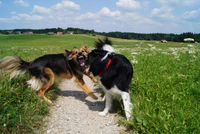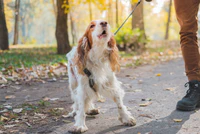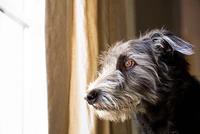The Ultimate Guide to Puppy Socialisation
Bringing a new puppy into your home is an exciting and transformative experience, but it comes with significant responsibilities. One of the most crucial aspects of raising a well-adjusted dog is socialisation. Proper socialisation helps shape a puppy’s behaviour, reducing the likelihood of fear, anxiety, and aggression while fostering confidence and adaptability. The process involves intentional exposure to a wide variety of stimuli, helping puppies form positive associations with new experiences rather than developing fear-based reactions.
A well-socialised puppy is more likely to grow into a resilient and adaptable adult dog, capable of handling various situations without undue stress. This guide explores the science behind socialisation, best practices for implementation, how different factors influence a puppy’s experience, and strategies for overcoming common challenges.
The Science of Puppy Socialisation
Socialisation is the process of introducing a puppy to new experiences in a controlled and positive manner. During early development, puppies undergo a critical socialisation period—typically between 3 and 12 weeks of age—where they are highly receptive to learning about their environment. This period is crucial for forming neural connections that determine how they respond to stimuli throughout life.
Exposure should include:
- Human diversity (adults, children, individuals with varying attire, mobility aids, or accessories like hats and sunglasses).
- Animal interactions (calm, well-socialised dogs, cats, livestock, and other common animals the puppy may encounter in daily life).
- Environmental variety (urban streets, rural areas, vet clinics, vehicles, staircases, elevators, noisy public spaces, and different types of flooring).
- Sensory stimuli (household noises, traffic, fireworks, bicycles, grooming tools, and weather-related conditions such as wind and rain).
- Handling and Grooming (being touched on the paws, ears, and mouth to prepare for veterinary visits and general care).
As human, we do strange shit with our dogs… no serious think about it! From a dogs prospective, we are strange. So this is our opporunity to help pups understand that ‘sometimes humans will use a hoover… play guitar… or want to touch your paws…’. These are not normal dog things, so it is our responsibility to help them understant it is normal.
The objective is to form positive associations with these elements, ensuring the puppy grows into a well-adapted adult dog. The brain’s ability to absorb new experiences declines as the puppy ages, so early exposure is key to fostering adaptability and confidence.
Without proper socialisation, dogs may develop neophobia (fear of the unfamiliar), leading to behavioural challenges such as reactivity, avoidance, or aggression. This can make future training and handling significantly more difficult and impact the dog’s quality of life.
The Critical Socialisation Period: When do I Start?
The ideal socialisation window occurs between 3-12 weeks. This stage is when puppies absorb new information rapidly and establish long-term behavioural patterns. After 12 weeks, their willingness to accept novelty diminishes, making socialisation efforts more challenging. Studies show that puppies who miss out on early exposure may require significantly more time and effort to adapt to new experiences later in life.
We can’t control weeks 1-8, chances are your puppy came into your home at 8 weeks old. This means you only have 4 short weeks to do it all!
However, don’t panic is you read this and are past this time frame, learning does continues throughout life. If a puppy is older and lacks early socialisation, a gradual desensitisation approach can still be effective under proper care. Older dogs may take longer to adjust, but with consistent positive reinforcement and patience, they can still develop resilience to new experiences.
📌 Tip: Controlled exposure is key. If a puppy appears hesitant, avoid forcing interaction, as this may reinforce fear responses. Instead, allow them to engage at their own pace with positive encouragement.
Balancing Socialisation and Vaccination: A Practical Approach
Many owners hesitate to socialise their puppies before full vaccination due to disease concerns. While caution is necessary, delaying socialisation entirely can result in missed learning opportunities, which can have long-term consequences on behaviour and temperament.
As a behaviourist, I will be clear my bias is about socialising a puppy over vaccinations.
Safe Socialisation Strategies Prior to Full Vaccination
✔ Arrange playdates with fully vaccinated, well-socialised dogs in private settings.
✔ Carry your puppy in new environments (e.g., parks, pet-friendly shops or shows) to expose them to sights and sounds safely. You can also play sounds on Youtube from your TV, like the sound of fireworks, children crying etc.
My Own YT videos below:
✔ Introduce controlled indoor environments, such as a friend’s home or a clean training facility.
✔ Expose them to household stimuli (vacuum, hairdryer, television) in a positive, low-stress manner.
✔ Provide varied textures (grass, carpet, pavement, sand, gravel) to familiarise them with different surfaces.
✔ Acclimate them to handling by gently touching their paws, ears, and mouth.
📌 Tip: Many veterinary clinics offer supervised “puppy socialisation classes” in sterile environments, balancing safety with critical exposure. These structured classes provide a valuable opportunity to socialise without unnecessary health risks.
Implementing a Structured Socialisation Plan
Initiate Low-Stress Interactions
Allow the puppy to observe stimuli from a comfortable distance before engaging.
Reinforce engagement with treats and verbal praise.
Keep sessions short and enjoyable—5-10 minutes per exposure is optimal.
Use calm and confident body language to model appropriate reactions for your puppy.
Gradually Increase Complexity
Once foundational experiences are positive, introduce more dynamic environments.
Short car trips to expose the puppy to vehicle travel.
Urban settings with mild pedestrian and vehicle traffic.
Supervised interactions with appropriately socialised dogs.
Pet-friendly establishments to encourage adaptability.
Different sounds and smells to prevent sensory sensitivity.
Monitor Behavioural Responses
Understanding canine body language is critical for assessing stress levels.
Signs of Comfort:
✔ Relaxed posture, soft and ‘floppy’ and not always a wagging tail
✔ Willingness to explore
✔ Acceptance of treats, if they wont take treats they might over threshold
✔ Normal play behaviour for their age
Signs of Stress:
❌ Tucked tail or flattened ears
❌ Shaking, excessive lip licking, yawning, scratching and stuck to you.
❌ Avoidance behaviours, such as cowering or retreating
❌ Panting when not hot, or not exercising.
If signs of distress occur, exit the situation calmly and reintroduce the stimulus later in a lower-intensity setting.
Prevent Overstimulation
Overloading a puppy with excessive new experiences can lead to sensory fatigue.
To mitigate this:
✔ Introduce one novel stimulus at a time.
✔ Allow sufficient downtime between experiences.
✔ Pair new exposures with positive reinforcement.
✔ Use structured rest periods to prevent burnout.
Key Takeaways for Effective Socialisation
✅ Prioritise positive reinforcement – Use rewards to shape confidence.
✅ Respect the puppy’s pace – Avoid pressuring them into interactions.
✅ Keep sessions brief and engaging – Quality over quantity.
✅ Continue exposure into adulthood – Ongoing socialisation ensures long-term adaptability.
✅ Seek professional support if necessary – Some puppies require specialised guidance.
By employing these evidence-based socialisation strategies, you can foster resilience and adaptability in your puppy, setting them up for a lifetime of positive experiences. 🎉🐶




